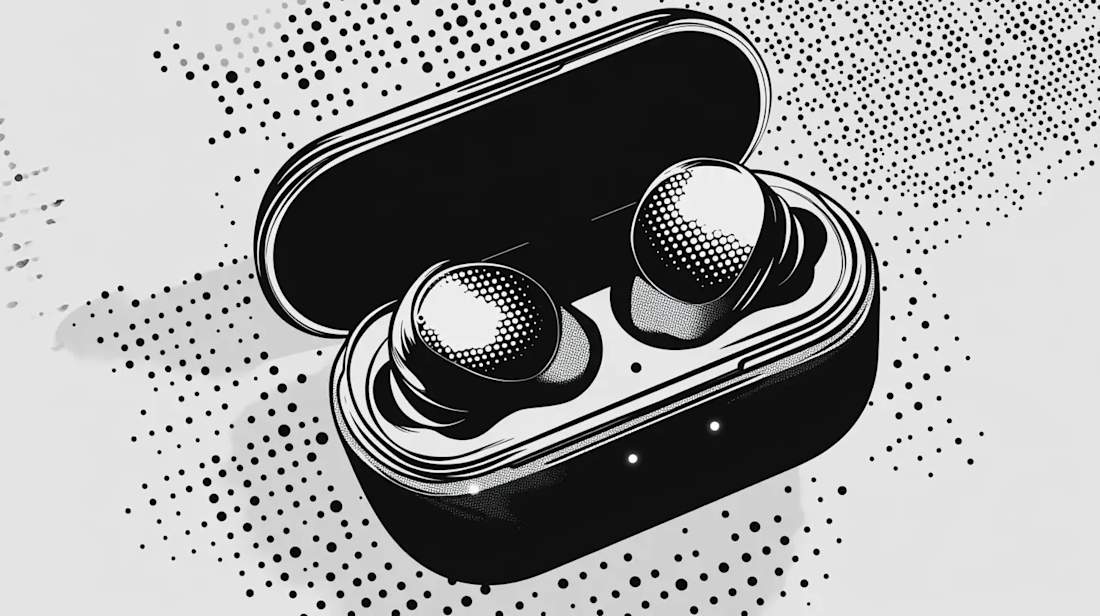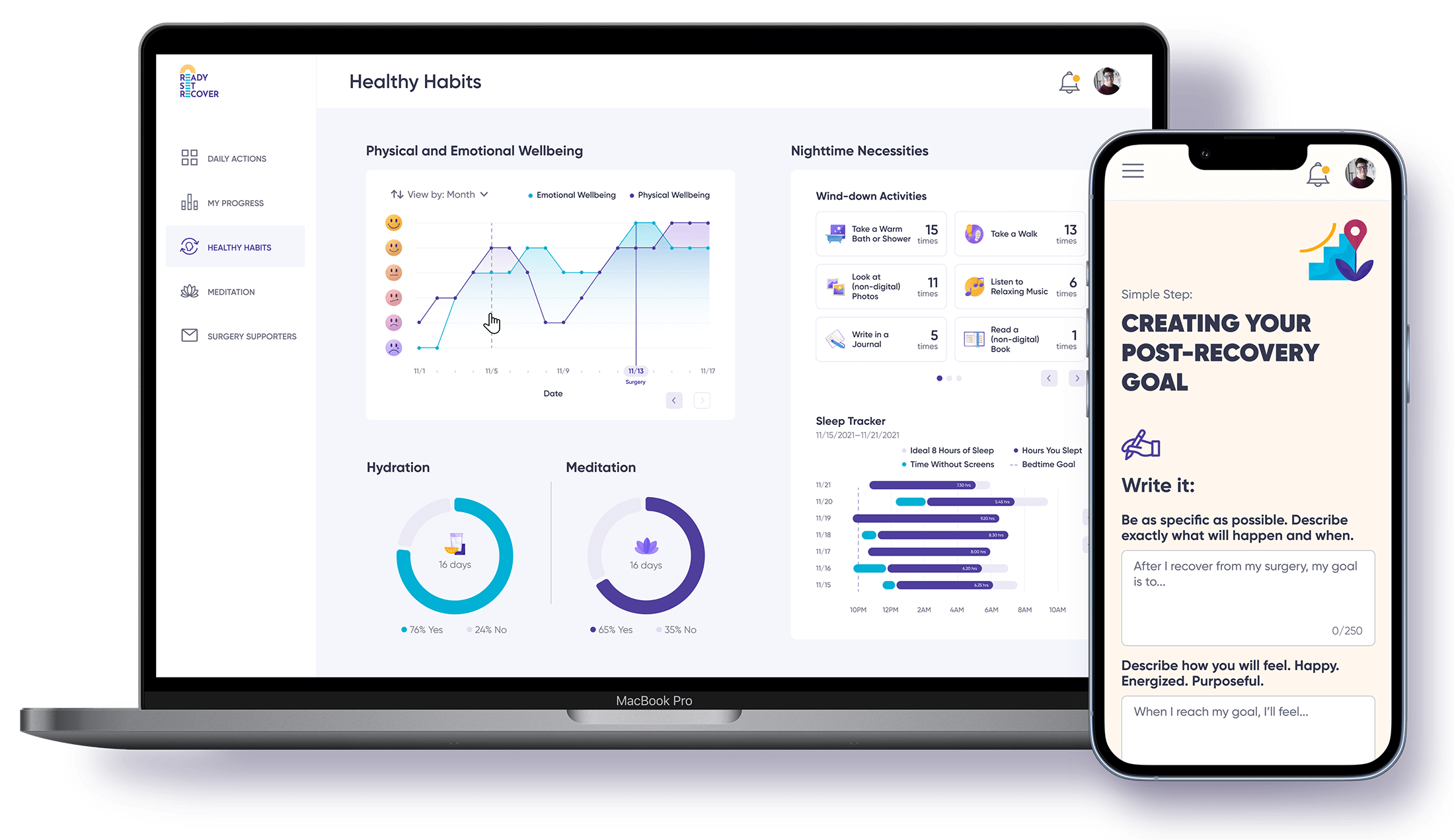Top Surgery Recovery Gift Ideas for a Speedy Healing Process


Gift baskets and flowers are fine, but with a little more thought and effort, you can give something that will be truly appreciated during the recovery process. When someone is recuperating, they’re often bored, possibly in pain, and may have limited mobility and energy. Distractions can help pass the time, while convenience items and comforts can make a world of difference. Whether it's practical aids, entertainment, or comfort-focused gifts, these options will make their recovery much more manageable and enjoyable.
Key Takeaways
Thoughtful gifts like comfort items, entertainment, and practical aids can significantly enhance a patient’s recovery experience.
Comfort-focused gifts such as weighted blankets, non-skid socks, and cooling eye masks help alleviate pain and anxiety during healing.
Nutrition is vital, so consider healthy meal delivery services and easy-to-eat snacks to support their recovery and well-being.
The Best Surgery Recovery Gift Ideas to Show You Care
When someone you care about is recovering from surgery, a well-thought-out gift can do wonders. It’s more than just a token; it’s a way to show your support and provide tangible relief from the boredom, discomfort, and emotional strain that often accompany the healing process. So rather than just go with the 'tired' and true, it's time to step up your game with something that's more thoughtful that will be truly appreciated and helpful.
During recovery, a recovering patient often struggles with pain, limited mobility, and a lack of energy. They might spend most of their time in bed or on the couch resting, finding it difficult to engage in their usual activities. This is where your perfect gift comes in. Selecting items that provide distractions, conveniences, and comforts can make their recovery far more manageable and enjoyable.
At Ready Set Recover, we've spent a lot of time speaking with people having surgery and have come up with a fairly comprehensive list of ideas that would be well received gifts for someone convalescing. Of course, everyone is different, so if there's one point we can't emphasize enough, it's that the best gifts are ones that are actually wanted and needed. Sounds obvious, right? So before you bake a meat lasagna for a vegetarian, or buy a Kindle for someone who already owns one (yes, we've done that) - take a few minutes to think about the recipient. Still not sure? Ask them or their caregiver(s).
Comfort Items

One of the most impactful gifts you can give someone recovering from surgery is comfort. Consider gifting a weighted blanket, which can improve sleep quality and reduce anxiety, promoting better rest. Weighted blankets provide added pressure which helps to calm the nervous system, making it easier to relax and fall asleep. These blankets come in various weights and sizes, so you can choose one that best suits the recipient's preferences and needs.
Non-skid socks are another thoughtful addition to any care package. These keep their feet warm and ensure safety by preventing slips and falls, which is important for someone who might be a bit unsteady on their feet. Pair this with a heated blanket or a massaging pillow, and you have a recipe for ultimate relaxation and pain relief.
Don’t forget about memory foam slippers and cooling eye masks. Memory foam slippers offer unparalleled comfort and support for tired, achy feet, while a cooling eye mask can help reduce swelling and provide a calming sensation, aiding in better rest and relaxation. Together, these items create a comfortable environment that can make the recovery period much more bearable.
Entertainment
Recovery often means long hours of rest, which can quickly turn to boredom. Entertaining distractions can be a game-changer. Subscriptions to streaming video services like Netflix or Hulu can offer endless hours of binge-worthy content for pretty much anyone who watches tv.
Of course, there are some people who don't (or won't admit it...), so for those who prefer more offline entertainment, puzzle books such as crosswords or sudoku, or even adult coloring books, can be a great option. These activities are fun and can reduce stress and anxiety by offering a sense of accomplishment and can be a great way to pass the time.
Audio streaming services like Spotify or Audible are fantastic for those who love to listen to music, audiobooks, or podcasts. These options offer hands-free entertainment, letting the patient relax and enjoy without physical exertion. A good story or uplifting music can significantly enhance their recovery journey.
Lastly, another great option is a subscription to meditation apps like Calm or Headspace. These apps offer guided meditations, sleep stories, and breathing exercises that can be incredibly beneficial for someone recovering from surgery. With a variety of programs tailored to different needs, they provide an excellent way for the patient to engage in mindfulness and relaxation practices. Whether they are new to meditation or experienced practitioners, these apps can be a valuable tool in their recovery toolkit, offering peaceful moments amidst the challenges of healing.
Practical Recovery Aids
Practical recovery aids can significantly ease the daily challenges faced by someone recovering from surgery.
A reach tool or grabber, for instance, allows them to pick up items without bending or stretching, reducing the risk of injury and making everyday tasks more manageable. This simple yet incredibly useful tool can greatly enhance their independence during recovery.
A bath chair is another really useful aid, allowing the patient to sit in the shower or bath if standing is difficult. The other huge benefit of a seat is that it significantly reduces the risk of slipping, which is a big problem in bathrooms, even when someone isn't recuperating from surgery.
Moving on to other bathroom accessories, an adjustable-height commode lets them go to the bathroom without the need to lower themselves to the toilet, which can be particularly useful if squatting is challenging. There are are stand-alone versions as well as raised seats with arms that can be screwed in to an existing toilet to raise it up by a 4 or 5 inches, if that’s more convenient.
Speaking of squatting, did you know that a side effect of anesthesia is constipation? A Squatty Potty is a stool for their stool 💩 (to come out more easily).
Another great device to consider purchasing is a cryotherapy pain relief system, which circulates cold water around areas such as knees, shoulders, or hips to reduce inflammation. These devices can significantly alleviate pain and reduce swelling.
Meal delivery service gift cards from services like Uber Eats or Doordash are another game-changer. For someone with limited mobility or energy, preparing meals can be challenging. These services offer the convenience of having ready-made meals delivered right to their doorstep, eliminating the need to cook. With a variety of options available, they can choose whatever suits their taste and dietary preferences, making meal times a much easier experience.
Other practical gifts include a pill organizer with reminders for medication, a recliner cushion or adjustable lap desk for added comfort while working or watching something in bed, or a water bottle with a built-in straw or hydration tracker to encourage drinking without frequent movement. A comfortable bathrobe for lounging also means not having to get fully dressed, which can sometimes be difficult when there are physical limitations.
Books and Journals
Light-reading books such as mysteries or romance novels are perfect for keeping spirits up without requiring too much mental effort. These genres can transport the reader to different worlds, provide excitement or heartwarming moments, and offer a pleasant escape from the monotony of recovery. If it's a book you'd take to the beach, it's probably a great choice for the couch too.
A gratitude journal or a guided recovery journal makes another nice gift, allowing the patient to track healing progress, reflect on experiences, and maintain a positive outlook. Writing can be therapeutic, helping them process emotions and stay focused on the recovery journey.
Tech

There are lots of different tech options, even for those who aren't 'techies'.
For example, wireless earbuds or headphones are perfect for listening to music, podcasts, or audiobooks, offering entertainment without the need to hold a device. Coupled with a tablet or phone stand, these tech gadgets offer hands-free convenience for browsing, watching movies, or reading while resting.
A portable charger can keep their devices powered up without needing to move around. Cords can be dangerous because they're a tripping hazard, so be sure to mention this to the recipient with instructions to only plug it in where there's no risk of falling.

For gamers, a handheld console like the Nintendo Switch or a retro game emulator can provide hours of entertainment. Of course, the more (good) games/cartridges, the longer the enjoyment typically lasts.
Voice-activated devices like Amazon Echo or Google Nest add convenience, enabling them to control their environment or get information with simple voice commands. These devices can be a game-changer during recovery, because they allow the patient to perform various tasks hands-free. From setting reminders to taking medication, adjusting lighting, playing music, or even making phone calls, these voice-activated assistants can significantly enhance the patient's comfort and convenience. Additionally, they can be programmed to provide daily affirmations or reminders to stay hydrated, contributing positively to the overall recovery process.
Digital picture frames are an excellent way to keep the patient connected with family and friends during their recovery. These frames can be preloaded with a variety of photos, ensuring that the patient has a constant reminder of their loved ones. Plus, many digital picture frames come with Wi-Fi capabilities, allowing friends and family to upload new pictures remotely. This feature can be particularly uplifting, as it provides ongoing support and connection, even from a distance. Some advanced models also include video playback and music, adding an extra layer of surprise and hopefully smiles.
Smart displays like a Tidbyt can brighten their recovery space by displaying customizable notifications, and useful information. These displays can be set up to show a variety of content such as weather updates, calendar reminders, motivational quotes, and even personalized messages. One great aspect of these gifts is their uniqueness, making them an unexpected surprise.
Healthy Meals and Snacks

Nutrition plays a crucial role in the healing process. Easy-to-eat snacks like granola bars, dried fruit, or trail mix promote healing with good nutrition, providing high-quality fuel for the body when it’s most needed. While cookies and chocolate are popular for those with a sweet tooth, healthier options are a better idea in order to promote recovery.
We mentioned meal delivery services earlier, but in most cases, home-cooked meals are often appreciated more than store-bought items or food from a restaurant. If you can cook, preparing their favorite meals while considering dietary restrictions. Look for things to make that are whole foods and digestible. Soup, for instance, is easy to eat and nutritious. If you need some ideas, check out this article on healing recipes.
Relaxing Sore Muscles

Physical discomfort is a common issue during recovery. A massage gun can help soothe sore muscles, providing much-needed relief from pain and tension. This device enables targeting of specific areas and manage discomfort effectively.
Gift certificates for professional massages are another excellent option. Once they’re cleared by their doctor, a professional massage can provide significant relief and relaxation. Pro Tip: Advise them to treat the wound area with care to prevent complications and ensure a safe, relaxing experience. Bonus Pro Tip: Massage can be dehydrating, so let them know to drink even more than normal to compensate.
Before Surgery: The Ultimate Gift
Preparing for surgery is just as important as the recovery itself. Ready Set Recover is a comprehensive platform that helps patients navigate their surgery journey, offering invaluable advice and support, mentally and physically preparing them for what lies ahead - making it the ultimate pre-surgery gift.
Gifting them Ready Set Recover shows you care about their well-being beyond just the recovery phase. It provides them with the necessary tools and knowledge to face their surgery with confidence, making the entire process smoother and less stressful.
The Best Surgery Recovery Gift Comes from the Heart

Thoughtful gift-giving can significantly enhance the recovery experience for someone who has undergone surgery. From comfort items that provide physical relief to entertainment options that keep the mind engaged, practical aids that ease daily tasks, and meals that promote healing, there are a variety of ways to show your support.
Remember, the best gifts are those that come from the heart and are chosen with the recipient’s needs in mind. Your gesture can bring significant comfort and make their recovery a easier and more pleasant. Of course, if you still can't think of anything...there's always flowers.
Finall Pro Tip: If you purchase something on Amazon, make sure to send the gift receipt so it can be returned just in case you miss the mark - which in spite of our best efforts, happens sometimes.
Frequently Asked Questions
What are the best types of gifts for someone recovering from surgery?
Great gifts for someone recovering from surgery include weighted blankets for comfort, streaming service subscriptions for entertainment, and meal delivery service gift cards for practical support. These thoughtful choices can really brighten their recovery period!
Should I consider dietary restrictions when gifting meals?
Definitely check for dietary restrictions before gifting meals, because it ensures the food will be enjoyable and suitable for them. It shows you care about their needs!
How can I make sure my gift is useful for their recovery?
To ensure your gift is truly useful for their recovery, consider their specific challenges like mobility or pain. Practical aids, comfort items, and some light entertainment can make a real difference.
Are homemade meals better than store-bought items?
Absolutely, homemade meals are typically healthier and can be customized to fit personal tastes and dietary requirements, making them a great choice. Plus, they often carry a personal touch that store-bought items just can't match.
What should I avoid when choosing a gift for someone recovering from surgery?
It's best to steer clear of gifts that require a lot of physical effort or could disrupt their recovery. Always keep their specific needs in mind and feel free to ask them if you're unsure.
What is a good gift for someone having back surgery?
A surgery recovery gift for back surgery should focus on comfort and mobility, like a wedge pillow, heating pad, or grabber tool to reduce strain. Entertainment gifts such as audiobooks or streaming subscriptions help pass the time, while soft clothing and mobility aids like grabbers or slip-on shoes make dressing and moving around easier.






